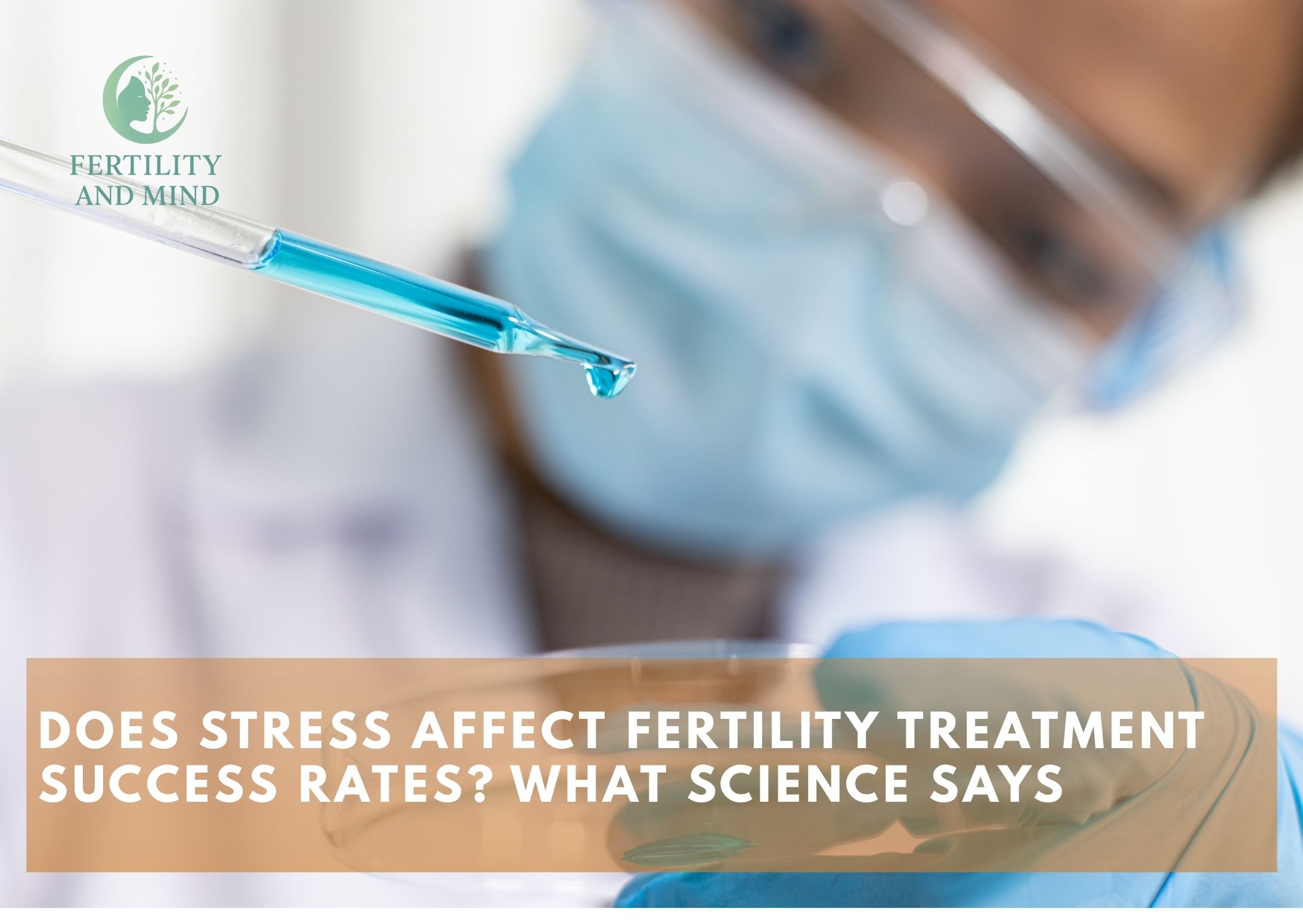
When going through fertility treatments, one of the most common questions patients ask is: “Does stress reduce my chances of success?” The truth is, while stress does not directly cause infertility, there is growing evidence that stress hormones can influence reproductive outcomes.
Understanding the connection between coping with infertility stress, emotional wellbeing, and medical success rates is essential for patients and clinicians alike.
The Science Behind Stress and Fertility
The Role of Stress Hormones
When the body experiences high levels of cortisol and adrenaline, it enters “fight or flight” mode. This can disrupt reproductive hormones, leading to irregular cycles and reduced implantation chances. Researchers suggest that stress reduction in infertility may improve treatment outcomes.
Anxiety During IVF Treatments
Studies have shown that patients experiencing anxiety during IVF treatments are more likely to report lower quality of life and sometimes discontinue treatment early. Although stress alone may not block pregnancy, it plays a role in overall health and resilience.
What Research Says About Success Rates
- A review in reproductive medicine journals indicates that fertility process stress management improves adherence to treatment and lowers dropout rates.
- Clinical evidence suggests that fertility process stress management improves adherence to treatment and lowers dropout rates. However, stress often combines with the side effects of fertility medications, which can intensify emotional struggles. For strategies on handling these effects, see our article on Fertility Medications and Mental Health: How to Handle Side Effects
- Couples who participate in infertility counseling and therapy or support groups often feel more optimistic, which correlates with higher persistence through multiple treatment cycles.
Psychological Strategies That Support Fertility
Cognitive Behavioral Therapy (CBT)
Cognitive behavioral therapy (CBT) for infertility helps patients reframe negative thoughts like “this will never work” into healthier perspectives. By lowering anxiety, CBT indirectly supports treatment consistency.
Mindfulness and Relaxation
Evidence shows that mindfulness and fertility outcomes are positively linked. Patients practicing meditation or breathing exercises often report improved emotional stability and reduced infertility depression and mood swings.
Partner and Community Support
Having strong social networks matters. Couples therapy and fertility clinic mental health services create protective emotional buffers, allowing patients to continue with less distress.
Does Stress Really Lower Success Rates?
The short answer: stress does not completely prevent pregnancy, but it makes the journey harder. By interfering with hormones, causing fertility journey emotional challenges, and increasing the likelihood of treatment dropout, stress plays an indirect yet significant role.
That’s why experts recommend combining medical treatment with psychological support for infertility to address both body and mind.
Conclusion
Stress alone may not determine fertility outcomes, but its effects on hormones, emotions, and treatment adherence are undeniable. Patients who focus on coping with infertility stress through therapy, mindfulness, and partner support increase their chances of completing treatments successfully.
In my perspective, the best approach is to balance medical science with emotional care. By practicing stress reduction in infertility and seeking professional guidance, patients can approach fertility treatments with more resilience and hope.

